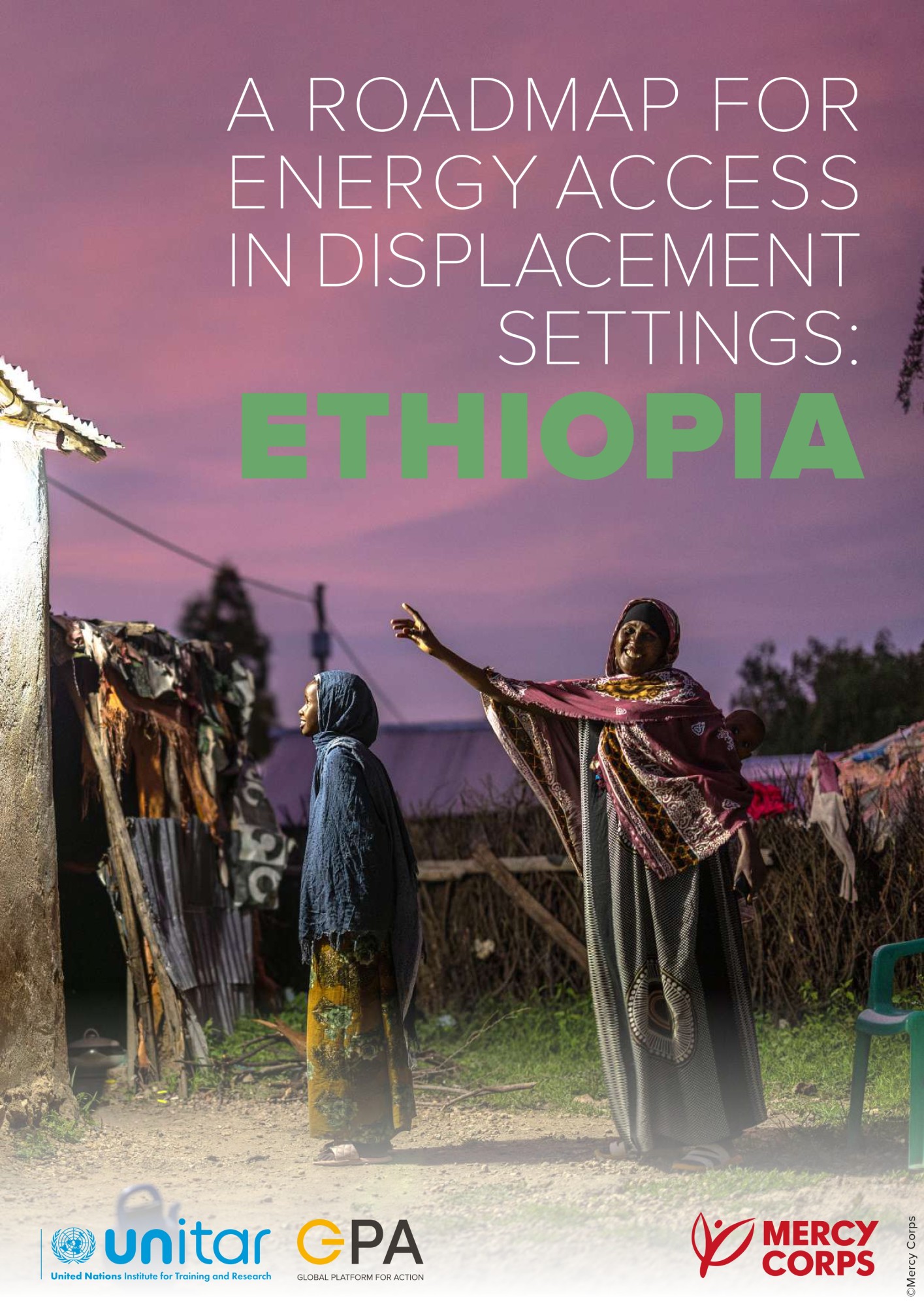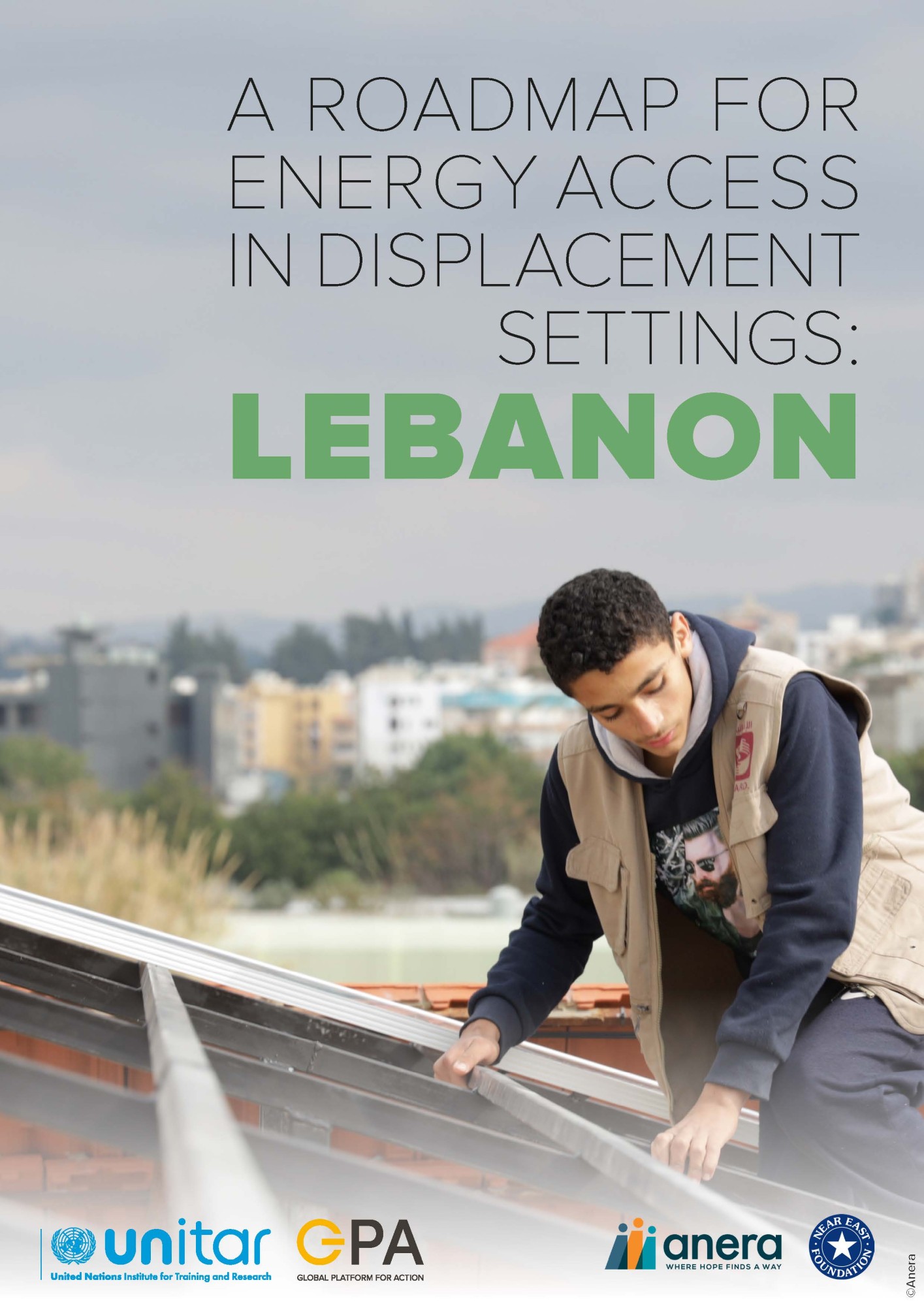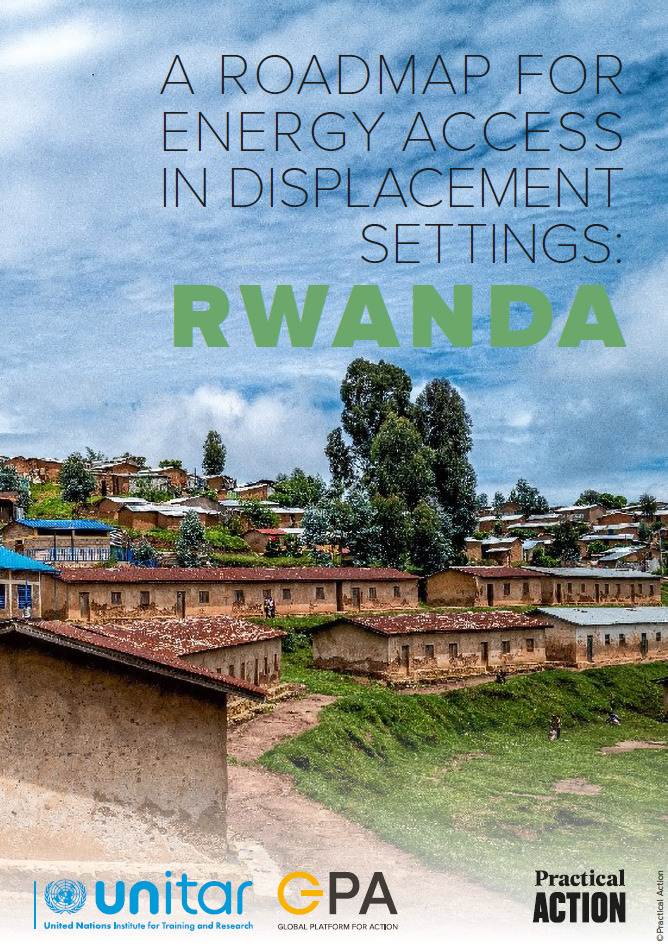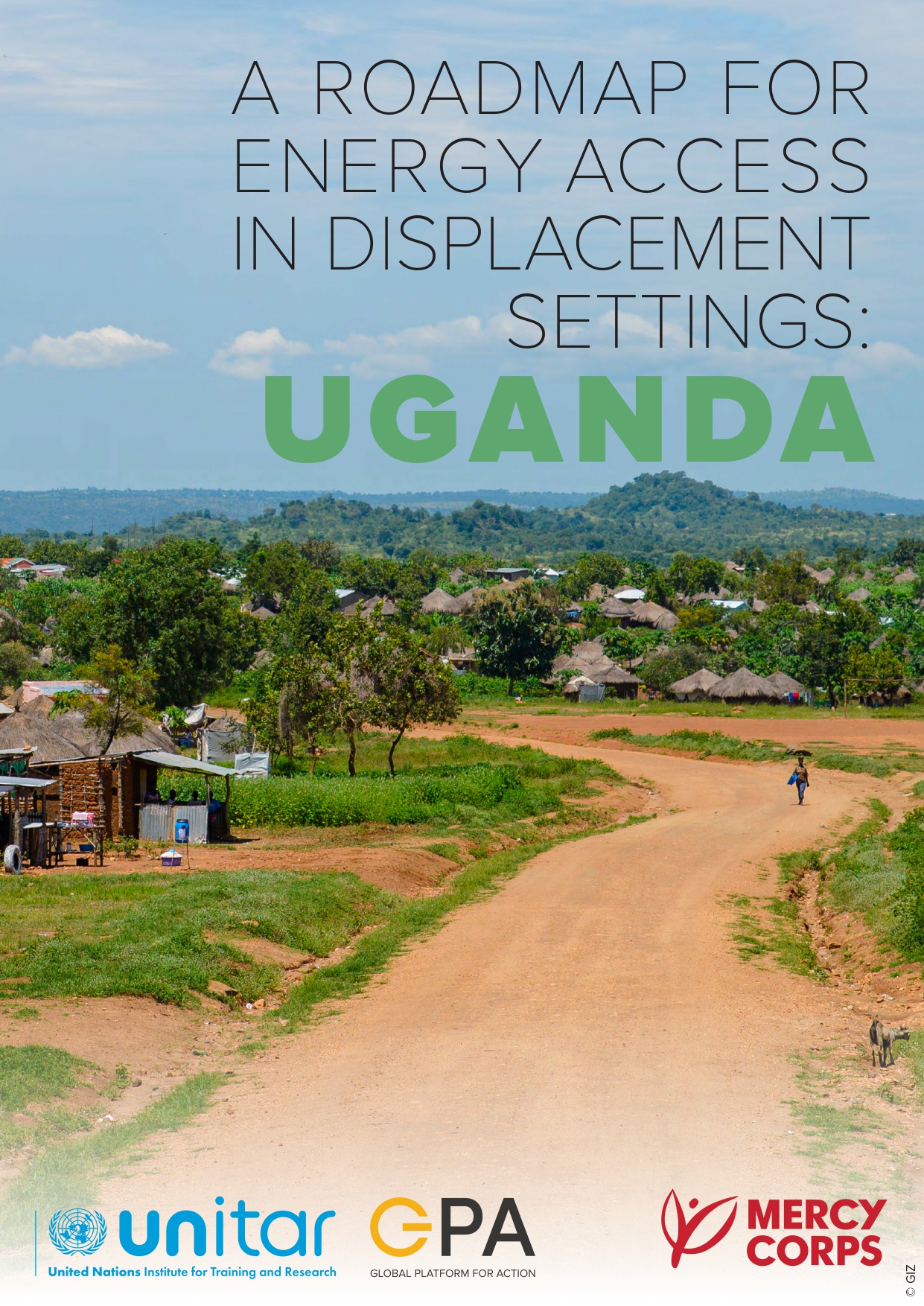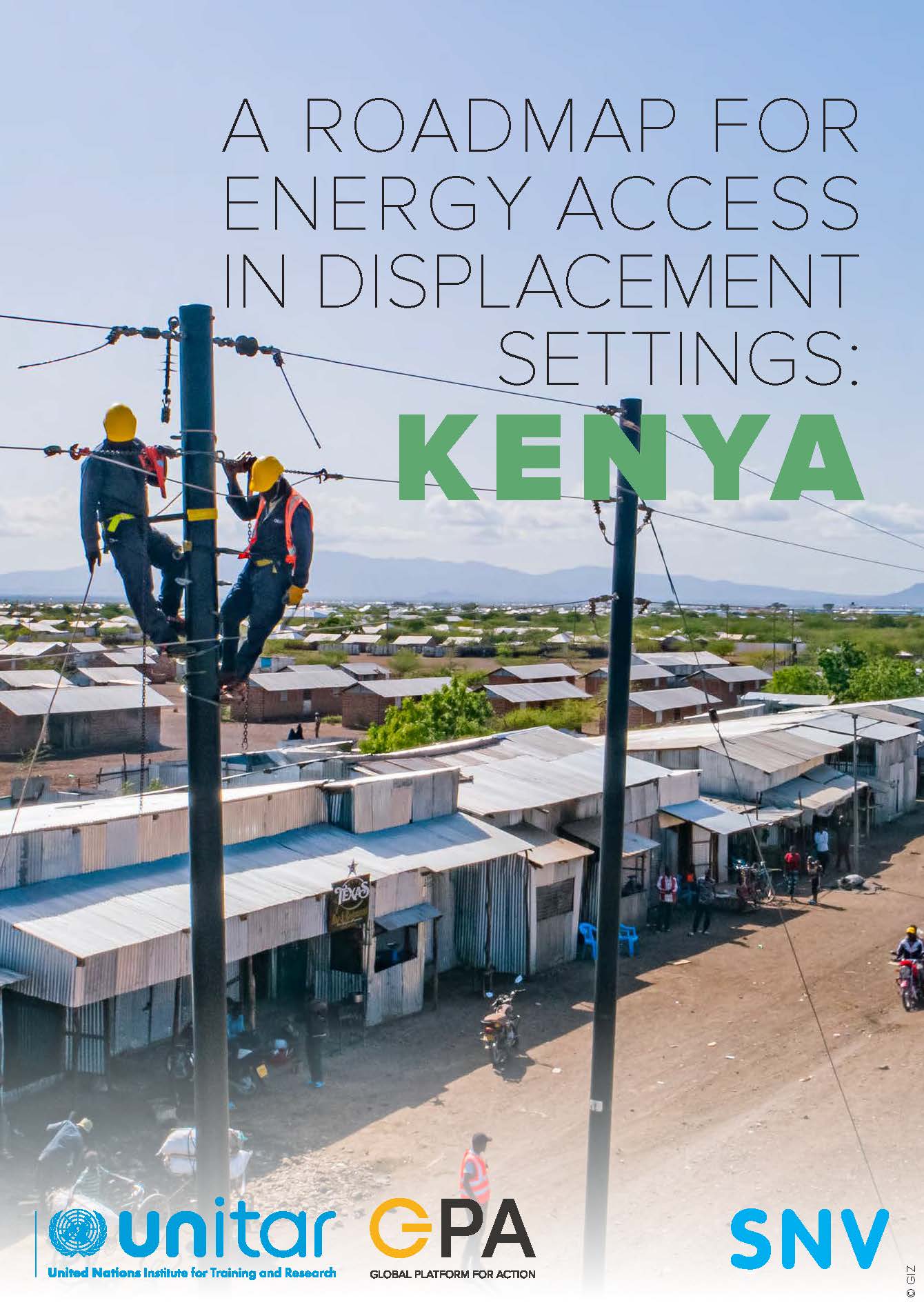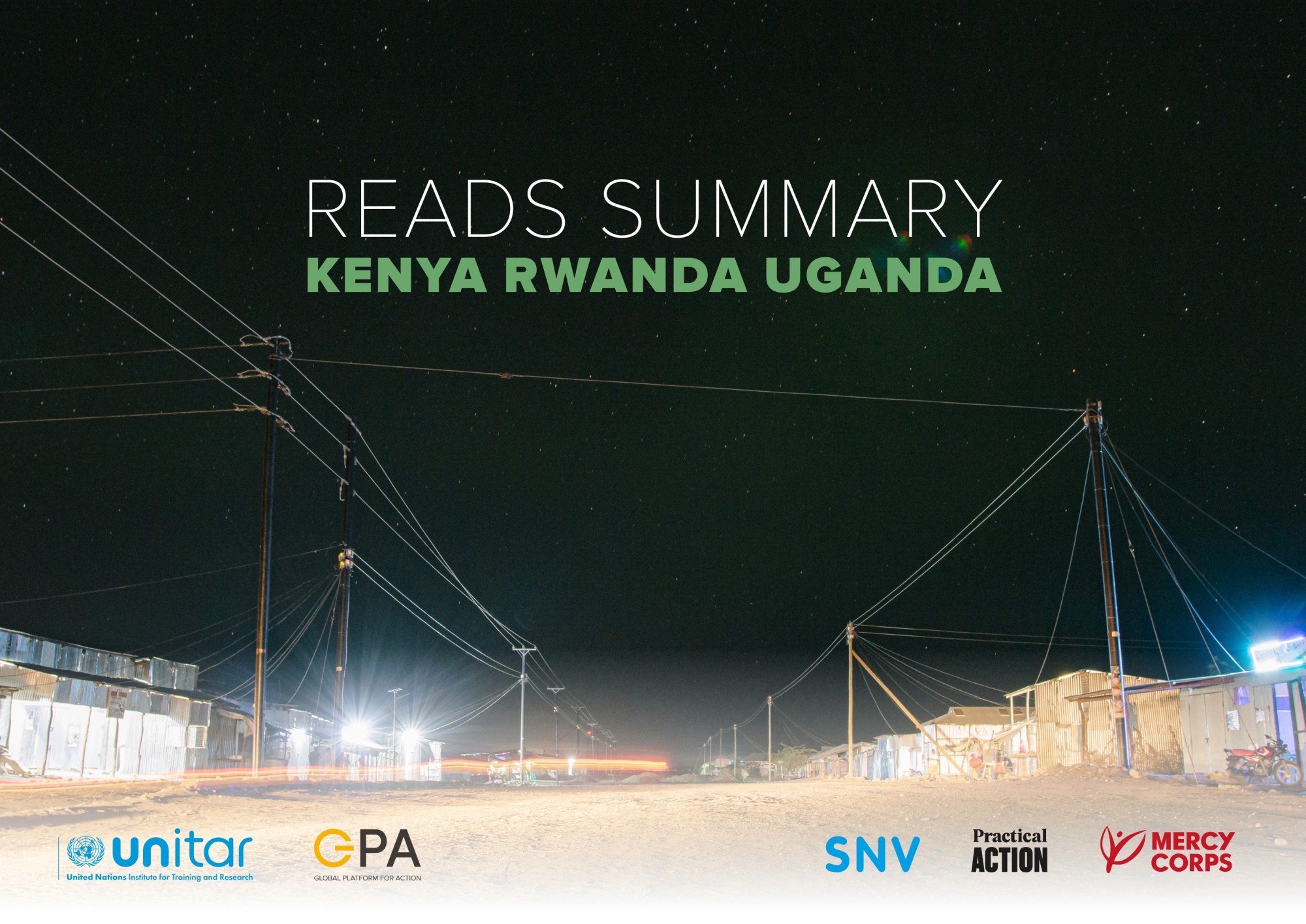In this section
In this sectionThe Roadmaps for Energy Access in Displacement Settings (READS) Programme, implemented by the GPA Coordination Unit at UNITAR and funded by the IKEA Foundation, aims to identify viable implementation opportunities to increase sustainable energy access in displacement settings across ten countries. The programme develops a “roadmap report” for each country that (a) summarises the energy and displacement situation, (b) identifies unmet gaps, and (c) proposes viable projects to increase sustainable energy access. The programme focuses on all displacement-affected communities including host communities, refugees, internally displaced people, and those in camps or urban settings, tailored to each national context.
The reports are informed by workshops with in-country stakeholders that engage a diverse range of actors from the private and public sectors, representatives of communities affected by displacement, local energy companies, humanitarian organisations, and governmental authorities. Each roadmap report is co-authored with a partner organisation working on energy access in displacement contexts in the respective country. Researchers from displacement backgrounds contribute to the reports, leveraging their networks, expertise and lived experiences.
The READS Programme focuses on ten countries (subject to change) over three years: Kenya, Uganda, Rwanda, Lebanon, Ethiopia, Jordan, Nigeria, Mauritania, Mozambique, and Bangladesh.
Please get in touch for further information on how your organisation can be involved in the READS Programme.
READS Workshop in Ethiopia
The READS programme hosted a workshop co-organised by Mercy Corps on 23 November 2023 in Addis Ababa. Stakeholders based in Addis Ababa came together with community and government representatives from Afar, Amhara, Benishangul-Gumuz, Gambella, and Somali regions to address key energy issues faced by forcibly displaced persons and their host communities and to explore promising solutions.
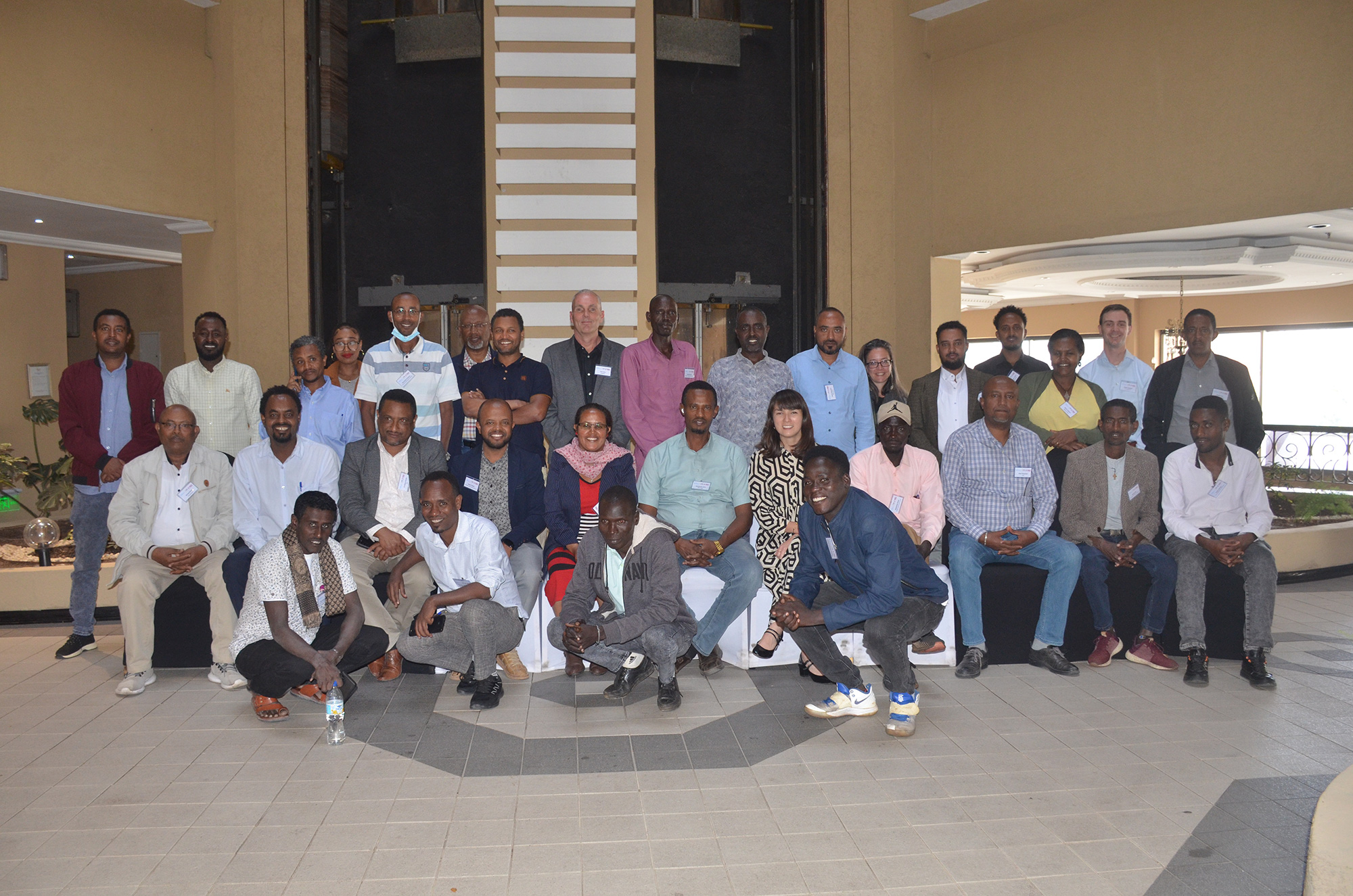
A Roadmap for Energy Access in Displacement Settings: Ethiopia
This report presents the status of sustainable energy access for displaced and host community households, businesses, and community facilities in displacement settings in Ethiopia. Developed in partnership with Mercy Corps and based on inputs received during the stakeholder engagement workshop, the READS Ethiopia Report provides an overview of stakeholders working towards SDG 7 and highlights opportunities for high-impact projects to support increased access to sustainable energy for displaced people and host communities.
Ethiopia hosts more than 1 million refugees and 4.3 million IDPs with most living in camps and communities in rural areas. Although challenges persist, the country has supportive policy frameworks for displaced communities which promote access to essential services, economic integration, and livelihoods opportunities, as well as having ambitious national goals for the uptake of sustainable energy.
Despite this, levels of energy access remain very low. Displacement settings in Ethiopia have seen a variety of initiatives for clean cooking, including the use of ethanol and electricity, but have not yet reached scale. Meanwhile the country’s first private sector mini-grid under the current legislation, implemented by Humanitarian Energy PLC, provides an example of the potential for companies to engage in displacement settings. Ethiopia offers a wide range of opportunities to foster the growth of energy projects but much greater investment will be required to match the scale of the needs of displaced people and host communities.
Click to read the READS Ethiopia report and blog post.
READS Workshop in Lebanon
The READS Programme held a stakeholder engagement workshop in Beirut, Lebanon on 19 September 2023. Local solar companies, NGOs, civil society organisations, and governmental representatives came together to discuss how renewable energy and energy efficiency measures could help vulnerable populations across Lebanon.
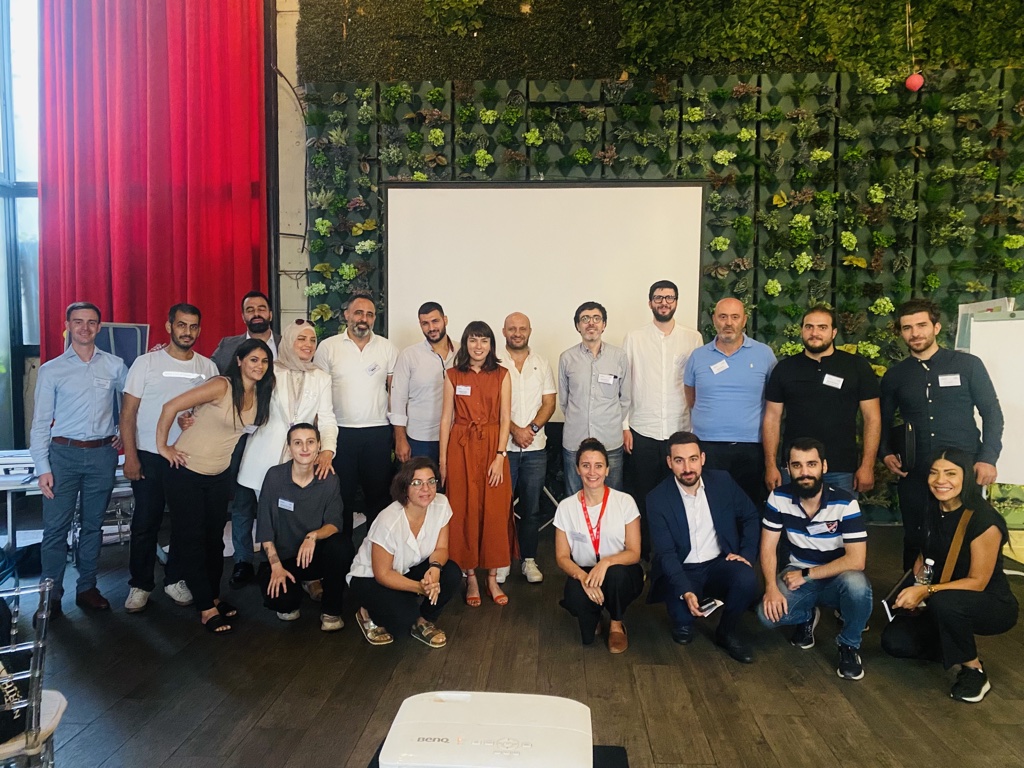
A Roadmap for Energy Access in Displacement Settings: Lebanon
Lebanon has been impacted by a severe economic and energy crisis which has hit its many vulnerable populations particularly hard. The country’s energy sector currently relies heavily on imported fossil fuels and the national grid experiences high levels of load shedding. People therefore must resort to costly alternative sources of electricity, for example through private diesel generator networks.
The READS Lebanon report explores the potential for renewable energy to improve the lives and livelihoods of people living in Lebanon. It also provides an overview of stakeholders providing sustainable energy solutions and nine high-impact project concepts to increase access to renewable energy. The report built on existing literature, interviews with key partners, and a stakeholder engagement workshop.
Increasing the adoption of reliable and sustainable energy will require a concerted effort from stakeholders across Lebanese society. By fostering collaboration across different sectors and leveraging new sources of funding and financing it will be possible to develop innovative, community-led solutions to enhance access to renewable energy and help to address Lebanon’s current energy challenges.
Click to read the READS Lebanon report and blog post.
READS Workshop in Rwanda
The READS Programme hosted the stakeholder engagement workshop in Kigali, Rwanda on 23 February 2023, supported by Practical Action. Community representatives, government agencies, private sector companies, and humanitarian and development actors from across the country met to discuss the key issues in Rwanda’s five refugee camps, as well as the barriers and opportunities for sustainable energy in displacement settings.
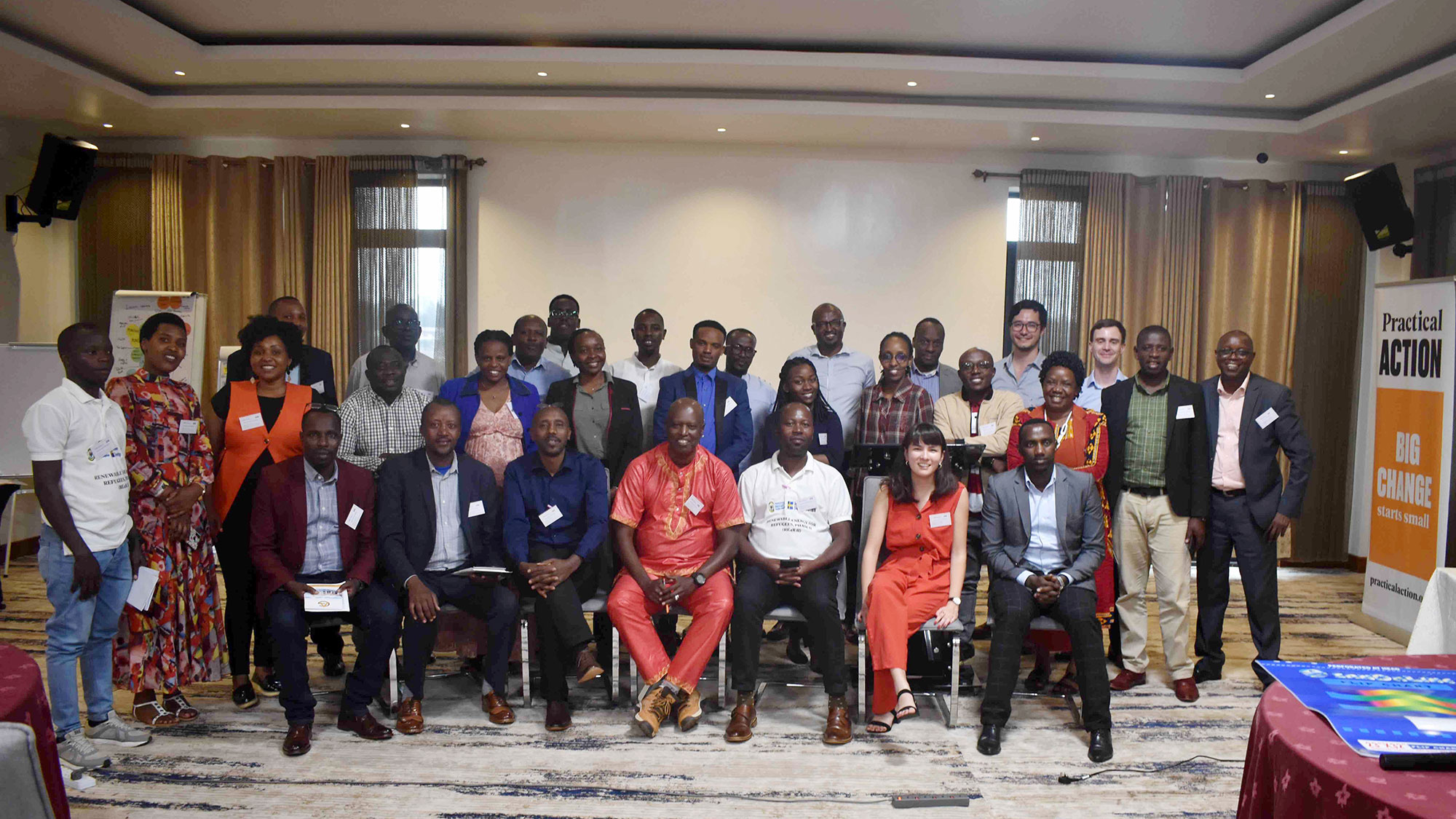
A Roadmap for Energy Access in Displacement Settings: Rwanda
This report presents the status of sustainable energy access for refugee and host community households, businesses and community facilities in displacement settings in Rwanda. Written in partnership with Practical Action and based on input received during the stakeholder engagement workshop, the report provides an overview of the stakeholders working towards SDG 7, and highlights opportunities for high-impact projects to support increased access to sustainable energy for displaced people and host communities.
Rwanda offers high potential to improve access to sustainable energy in displacement settings and the country offers a supportive framework for both displaced people and sustainable energy. Previous and ongoing projects which support market-based approaches – from the wide-reaching RE4R Project to smaller, more focused interventions for electricity access and clean cooking – provide a network of stakeholders and lay the foundations to scale up promising work throughout Rwanda.
Click to read the READS Rwanda report and blog post.
READS Workshop in Uganda
The READS Uganda workshop, supported by Mercy Corps, took place in Arua on 1 March 2023. Participants discussed how entrepreneurs can leverage electricity to expand their businesses, the importance of clean cooking solutions for environmental protection, and various opportunities for sustainable energy access in displacement settlements throughout the West Nile region and beyond.
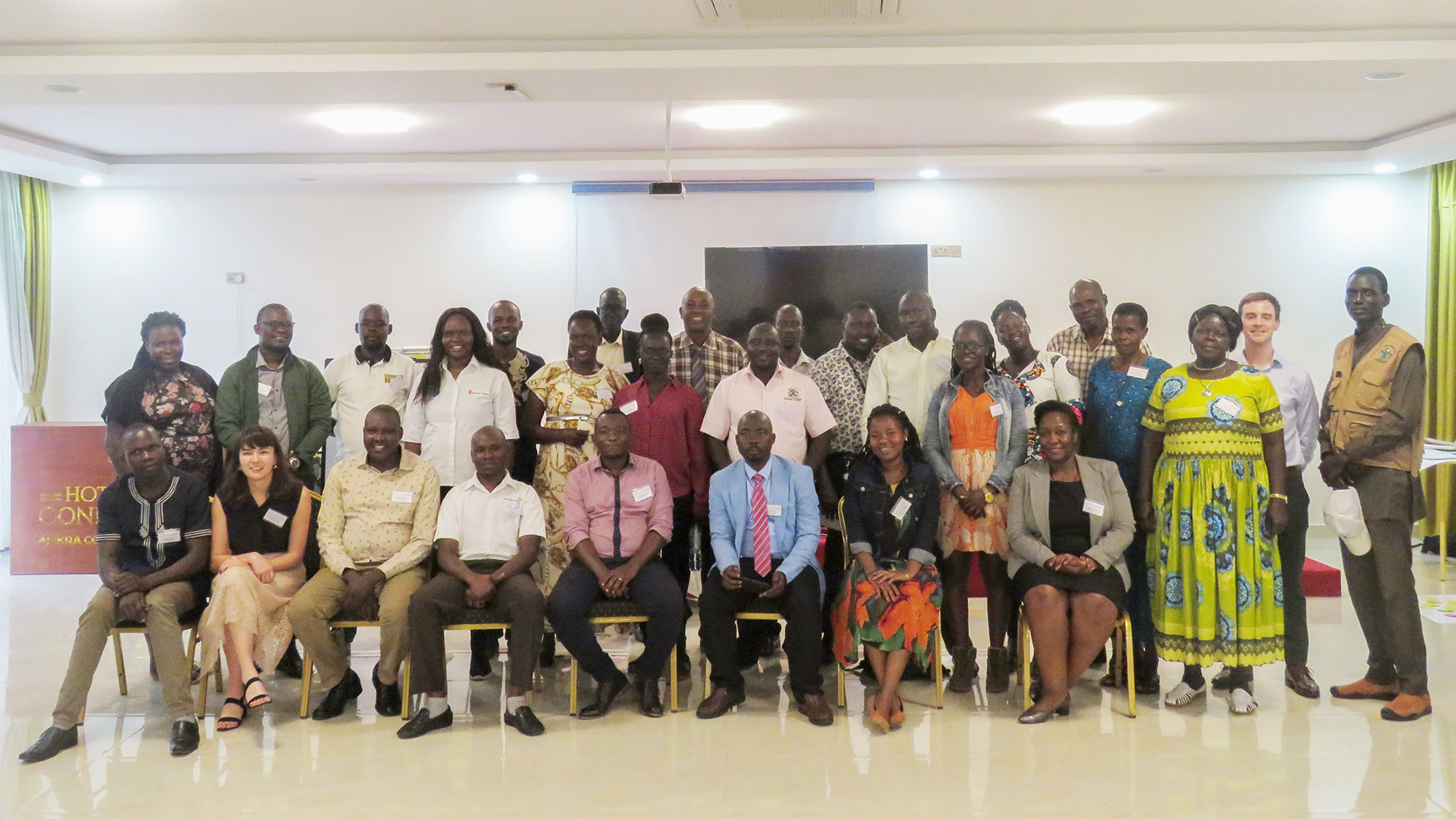
A Roadmap for Energy Access in Displacement Settings: Uganda
This report presents the status of sustainable energy access for refugee and host community households, businesses and community facilities in displacement settings in Kenya. Written in partnership with Mercy Corps and based on input received during the stakeholder engagement workshop, the report provides an overview of the stakeholders working towards SDG 7 and highlights opportunities for high-impact projects to improve access to sustainable energy for displaced people and host communities.
The report highlights huge potential to improve access to sustainable energy for displacement-affected communities in Kenya. National policies towards increasing the self-reliance of refugees and supporting host communities, and favourable policies towards sustainable energy projects, together offer a strong foundation for improving access to electricity and clean cooking solutions. In Kakuma and Kalobeyei, private sector engagement – supported by coordinated actions of humanitarian and development organisations, government partners, and the communities themselves – has demonstrated the potential for market-based programming.
Click to read the READS Uganda report and blog post.
READS Workshop in Kenya
On 7 March 2023, the READS workshop in Kakuma, supported by SNV, brought together cookstove manufacturers, international solar companies, refugee mini-grid operators, development actors, UN agencies and government partners to discuss key energy issues and ways to improve sustainable energy access in Kakuma and Dadaab.
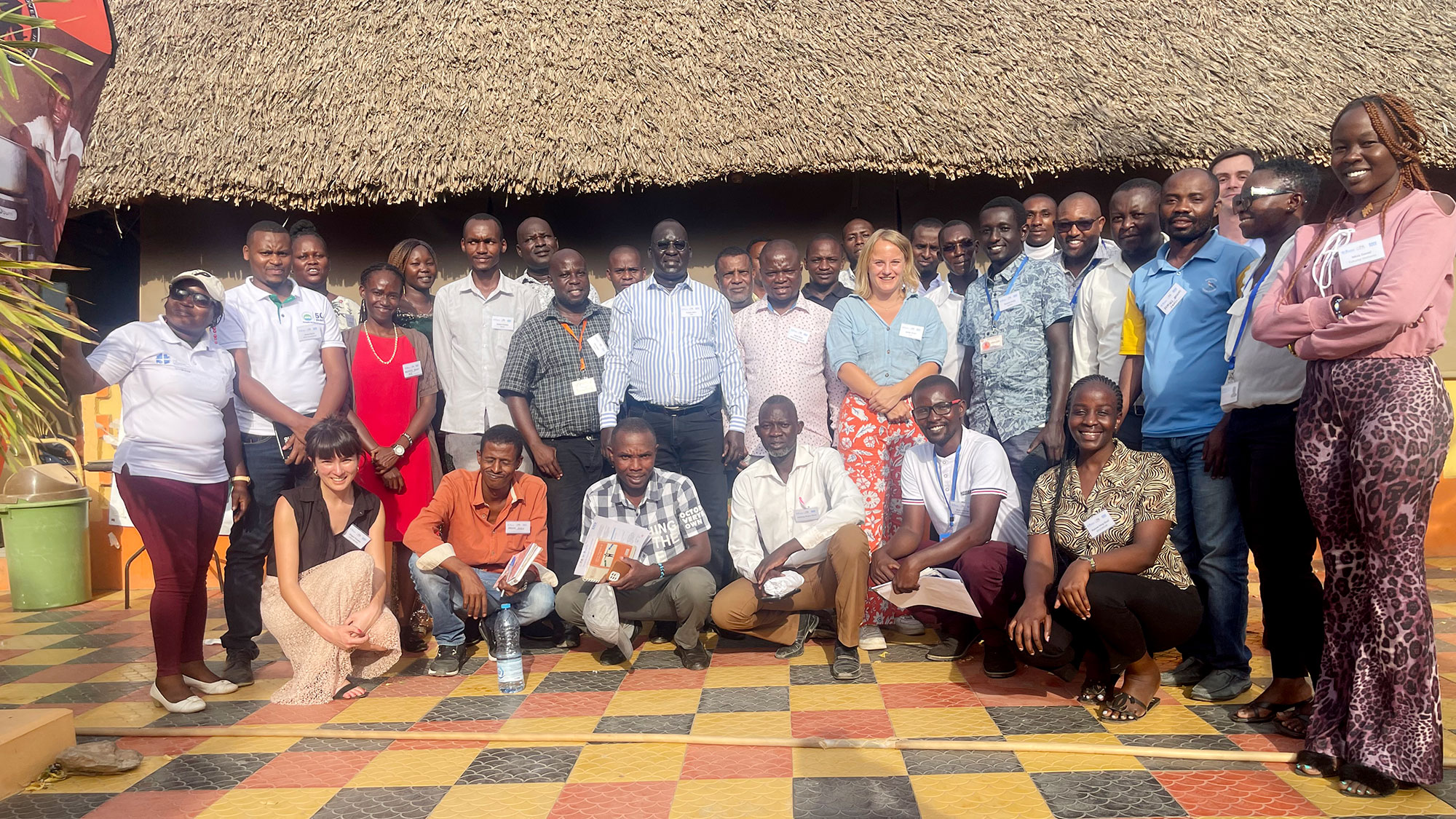
A Roadmap for Energy Access in Displacement Settings: Kenya
This report presents the status of sustainable energy access for refugee and host community households, businesses and community facilities in displacement settings in Kenya. Written in partnership with SNV and based on input received during a stakeholder engagement workshop, the report provides an overview of the stakeholders working towards SDG 7 and highlights opportunities for high-impact projects to improve access to sustainable energy for displaced people and host communities.
The report highlights the huge potential to improve access to sustainable energy for displacement-affected communities in Kenya. National policies towards increasing the self-reliance of refugees and supporting host communities, and favourable policies towards sustainable energy projects, together offer a strong foundation for improving access to electricity and clean cooking solutions. In Kakuma and Kalobeyei, private sector engagement – supported by coordinated actions of humanitarian and development organisations, government partners, and the communities themselves – has demonstrated the potential for market-based programming.
Click to read the READS Kenya report and blog post.
Full report: Download here
DHE-READS Workshop in Nigeria
The DHE-READS Nigeria workshop, supported by Decarbonising Humanitarian Energy (DHE) Programme and local partners Mercy Corps, NORCAP/NRC and UNDP, was held on 12 September 2024, with participants from government entities, UN agencies, local and international NGOs, private companies, and displaced and host community representatives from Sokoto, Kaduna, and Katsina states. The workshop sessions included introductions to the DHE and READS Programmes, mapping of stakeholders and community facilities, identifying the barriers and opportunities for sustainable energy, and designing potential high-impact project concepts.

READS Workshop in Mauritania
The READS Mauritania workshop took place in Nouakchott on 25 February 2025, in collaboration with UNHCR Mauritania. It brought together community representatives, UN agencies, local and international NGOs, and private sector companies. Participants mapped the organisations, projects and partnerships working in these areas; identified barriers and opportunities for sustainable energy access; and co-designed project concepts for household electricity, clean cooking, livelihoods and productive uses of energy, and humanitarian operations and community facilities.
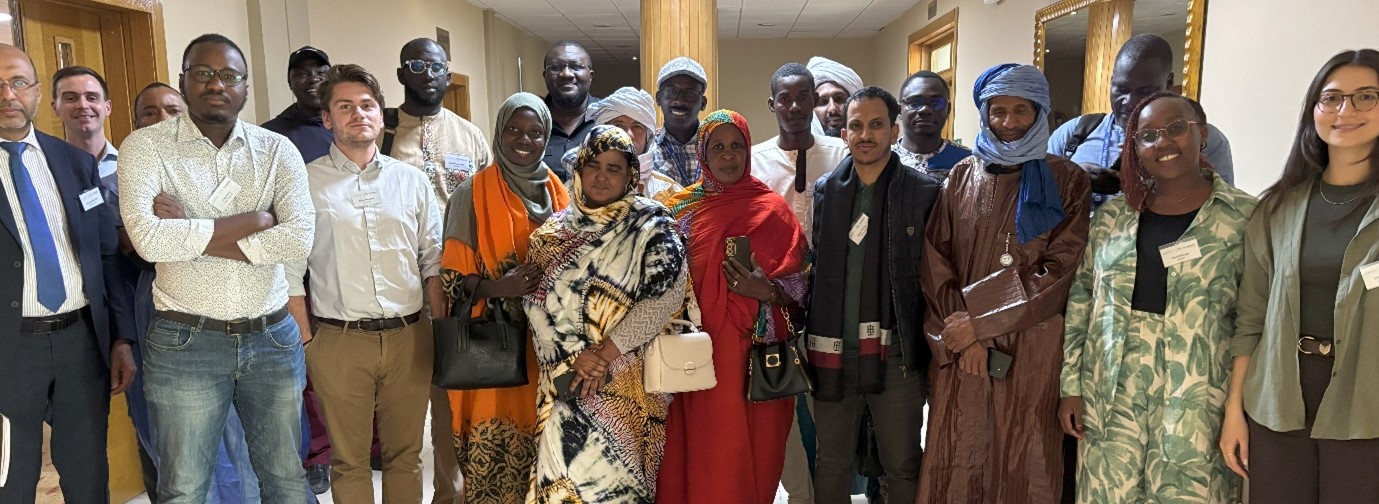
READS Workshop in Mozambique
The READS Mozambique workshop was hosted in Maputo on 5 March 2025, in collaboration with IOM Mozambique, gathering representatives from displacement-affected communities, government representatives, UN agencies, NGOs, and private sector companies. Participants engaged in mapping stakeholders, projects and partnerships; identified key barriers and opportunities for sustainable energy access; and co-designed high-impact project concepts to improve sustainable energy access in displacement contexts in Mozambique.
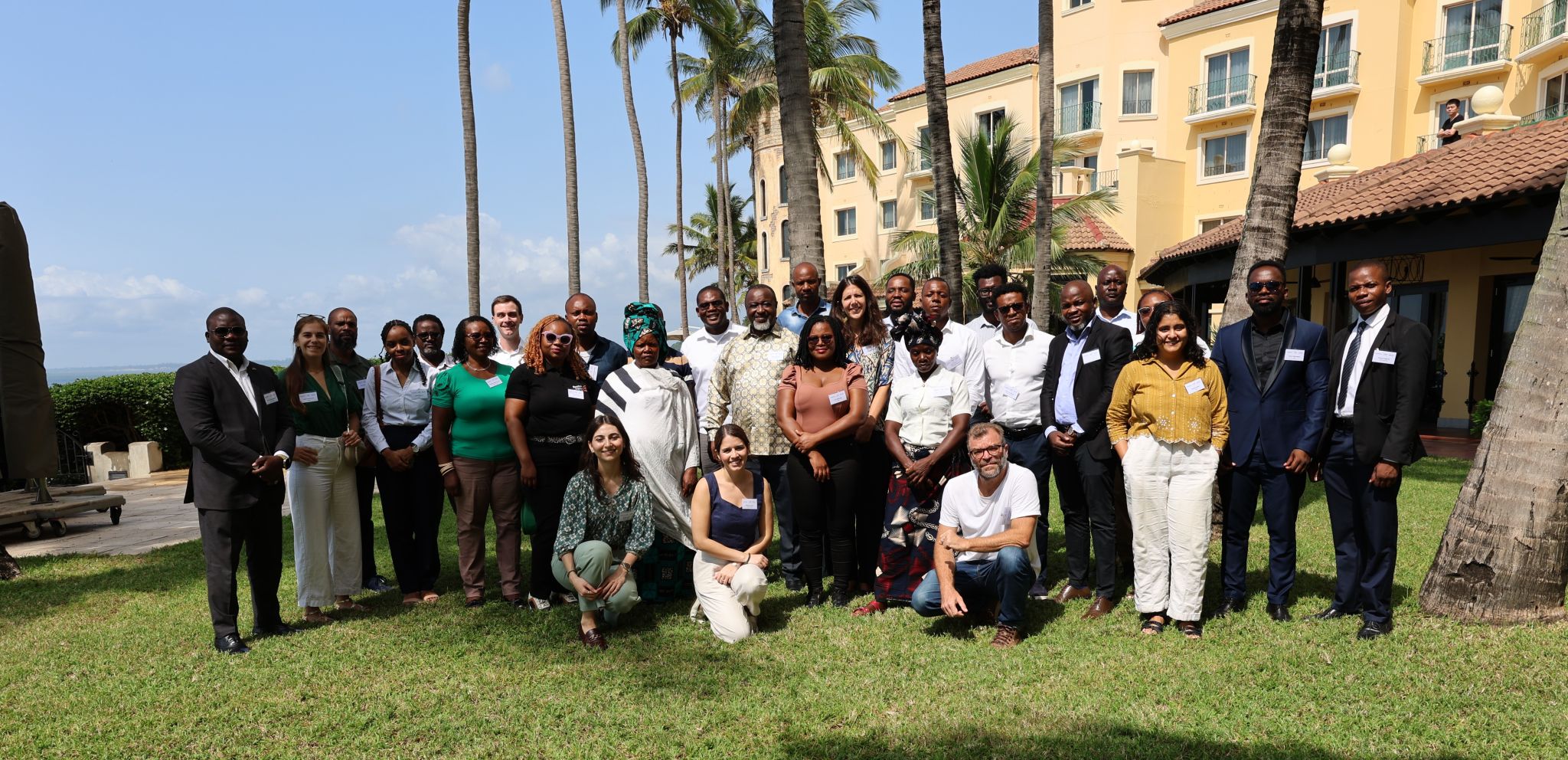
READS Workshop in Bangladesh
The READS Bangladesh was held in Cox’s Bazar on 12 February 2025, in collaboration with UNHCR Bangladesh, IUCN, MECS gathering representatives from displacement-affected communities. Participants discussed key barriers and opportunities for sustainable energy access, and co-designed high-impact project concepts to improve sustainable energy access in displacement contexts in Bangladesh.

Donor Engagement Workshop
In February 2024, the READS Programme organised a one-day donor engagement workshop in Leiden, the Netherlands, co-hosted with the IKEA Foundation. Participants from seven donor organisations discussed the findings of the READS Programme in Kenya, Rwanda, and Uganda discussing ways to increase energy access in displacement settings. Workshop participants shared their recommendations for project implementation and their reflections for future work. Read the donor engagement workshop summary and blog post here.
Webinar on Building Energy Markets in Displacement Settings
In July 2024, READS Programme hosted a webinar on Building Energy Markets in Displacement Settings to explore how market-based sustainable energy solutions can be designed and implemented in displacement settings. The webinar was co-hosted with READS programme partners SNV in Kenya, Mercy Corps in Uganda, and Practical Action in Rwanda. Watch the webinar recording.
For further information about the READS Programme, please contact Elif Gül Demir and Philip Sandwell.
Last updated: 19/03/2025

